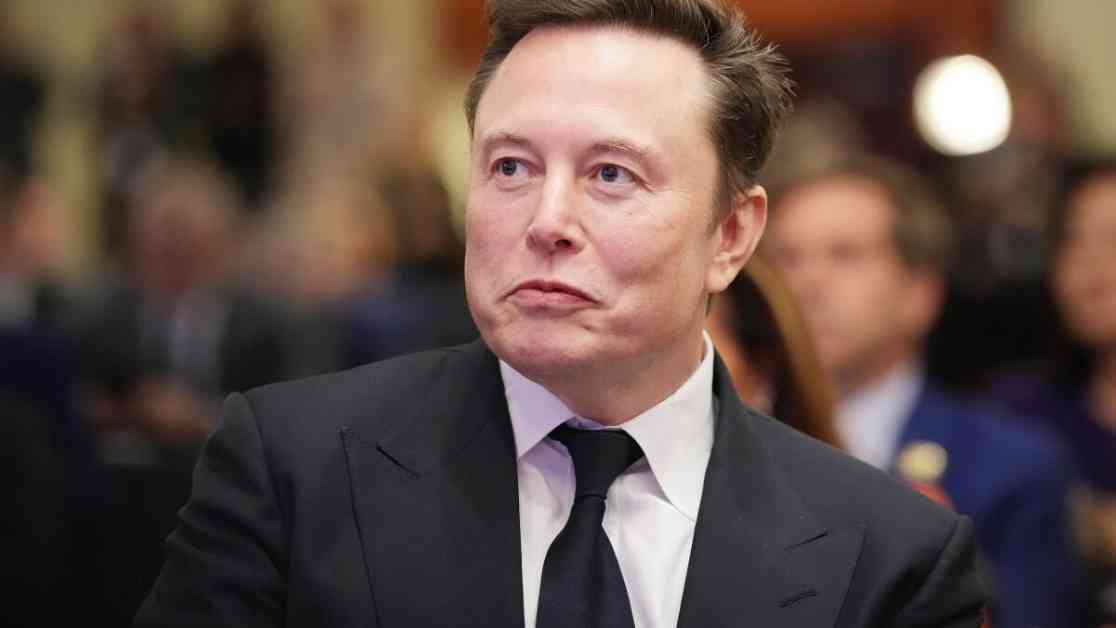President-elect Donald Trump has tasked two wealthy entrepreneurs, Elon Musk and Vivek Ramaswamy, with a challenging mission: to make the U.S. government smaller and more efficient. The goal is to drive radical change and big reforms not bound by past practices, similar to the Manhattan Project that created the atomic bomb during World War II. Musk, the CEO of Tesla and SpaceX, and Ramaswamy, a healthcare entrepreneur, have been chosen to head a new Department of Government Efficiency.
The duo is expected to implement major cuts and new efficiencies in bloated government agencies by July 4, 2026. This ambitious deadline coincides with the 250th anniversary of the signing of the Declaration of Independence. Trump has emphasized that Musk and Ramaswamy will operate outside the federal bureaucracy and are tasked with driving significant changes.
However, many details about their approach remain unknown. The new Department of Government Efficiency, with the acronym DOGE matching Musk’s favorite cryptocurrency, has no employees or budget. How the initiative will be funded, how many people will be involved, and how they will be compensated are still unclear. Previous successful government reorganizations have relied on input from those within the bureaucracy to ensure that services are maintained while cutting costs.
One key concern is the potential conflict of interest that Musk, as the world’s richest person, may face. His various businesses, including SpaceX, have received substantial government contracts and have been the subject of federal investigations. It is essential for those advising the government to prioritize the public good over personal interests to maintain trust and integrity.
Musk’s public statements about government regulations and overregulation have sparked debates about the impact of cutting red tape. While he believes in reducing unnecessary regulations, others argue that safeguards are essential to protect the environment, workers, and public safety. The role of government in balancing regulation and innovation is a complex issue that requires careful consideration.
Trump’s proposed cuts to government agencies like the Department of Education and the Department of Agriculture have raised questions about the future of essential programs and services. Musk’s support for some of these proposals has drawn attention to the potential consequences of significant government downsizing. Balancing efficiency with the need to support vulnerable populations is a critical challenge in any government reorganization effort.
Efforts to streamline government operations and reduce bureaucracy have been undertaken in the past, with varying degrees of success. The Grace Commission and the National Partnership for Reinventing Government are examples of initiatives that aimed to make the government more efficient. Leveraging technology and input from career bureaucrats can help drive effective change while maintaining essential services.
As Musk and Ramaswamy embark on their mission to reform government efficiency, they will face scrutiny and challenges. The need to balance innovation with accountability, efficiency with integrity, and cost-cutting with service delivery will be key considerations in their efforts. The success of their initiative will depend on their ability to navigate these complex issues and collaborate effectively with stakeholders both inside and outside the government.
In conclusion, the task of reshaping government efficiency is a monumental one that requires careful planning, stakeholder engagement, and a commitment to the public good. Musk and Ramaswamy have a unique opportunity to drive significant change and set a new standard for government innovation. The road ahead will be challenging, but with the right approach and support, they have the potential to make a lasting impact on government operations in the United States.



























